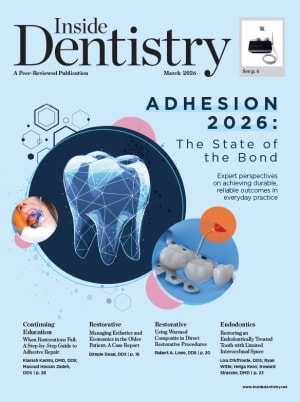Business as Unusual
These are unusual times for dentists. For some, they are lucrative times. But for many others, they are trying times. A convergence of factors stemming from the still lingering effects of the COVID-19 pandemic as well as those stemming from the effects of inflation, the rise of dental service organizations, changes in patient populations and expectations, and other sources has resulted in a maelstrom of financial and operating pressures on dental practices, from staffing shortages and lower patient volume to stagnating insurance reimbursements and the skyrocketing cost of supplies and equipment-all of which are having negative effects on profitability.
In times like these, focusing on the business of dentistry is more important than ever. This month, Inside Dentistry's 2024 business issue includes articles addressing a variety of different practice management topics to help you do just that. In "Raising the Bar," Roger Levin, DDS, examines the elements of productivity campaigns and presents strategies to help practices maximize their production. Interested in helping your older patients accept more treatment? We have an excellent article from Medicare expert Al Kushner to help practices demystify the dental benefits of Medicare Advantage. If you read my letter in last month's issue, you know that the shortage of hygienists is having a profound effect on my practice. Another article in this month's issue suggests that resolving the shortage will require transformative change and offers recommendations on how the industry can reimagine the role of dental hygienists.
This month's CE article addresses the provision of language assistance services for patients with limited English proficiency. For practices that receive federal funds, this is required by law, but all dental practices should strive to ensure the linguistic and cultural appropriateness of their patient communications. Other articles in this issue explore topics such as how artificial intelligence is helping to foster patient trust and improve care delivery; how listening to patients to incorporate their values into treatment presentations can improve case acceptance; how to provide customized care for patients with developmental disabilities, severe dental anxiety, and other unique needs in traditional practice settings; and more. I hope you enjoy the issue!
Robert C. Margeas, DDS
Editor-in-Chief, Inside Dentistry
Private Practice
Des Moines, Iowa
Adjunct Professor
Department of Operative Dentistry
University of Iowa
Iowa City, Iowa
robert.margeas@conexiant.com
